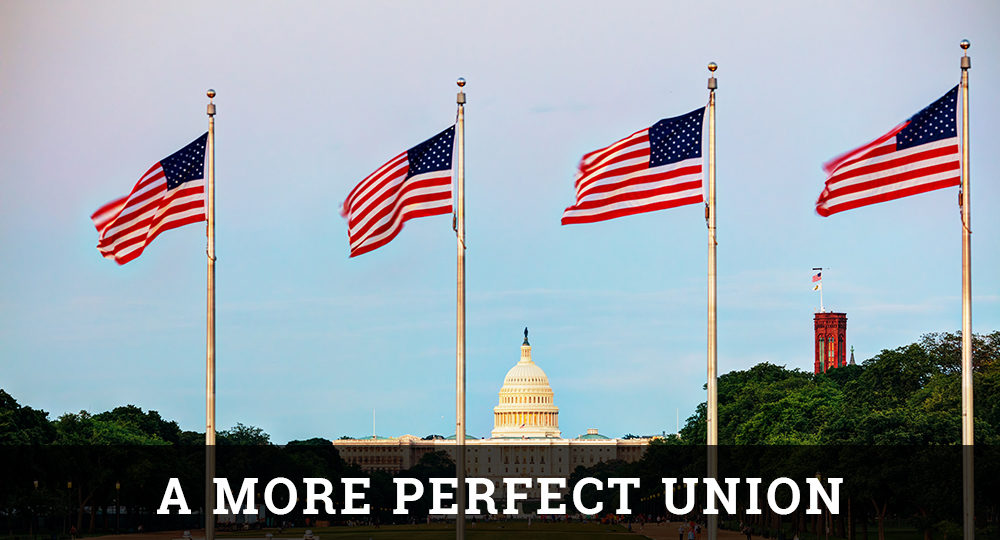Free Speech and the Well-Traveled Road
This year the White House has promoted two disconcerting proposals that would cede more power over the Internet to the international community. The result would undoubtedly lessen American control over the Web and could present a profound threat to the free-speech rights of U.S. citizens.
The first initiative involves the Obama administration’s announcement that it will divest the United States of any official Internet oversight, starting in 2015. The Internet was first developed as a project of the U.S. Department of Defense around the mid-20th century. From its inception until it was opened to civilian use, the United States has retained oversight through the Commerce Department and its little-known agency, the National Telecommunications and Information Administration.
The Commerce Department has used a private, nonprofit organization called ICANN (Internet Corporation for Assigned Names and Numbers) to do the routine work of overseeing what is basically the address book for the entire World Wide Web (Web addresses that are provided, such as .com, .net).
While this service may sound mundane, until now the United States has retained the position of the Web’s chief overseer. With the exception of individual governments (China or Iran, for instance) that occasionally censor certain Internet functions for their own citizens, the rest of the world has enjoyed a relatively open flow of information on the Internet, thanks to American oversight.
But now the White House wants to turn the running of the entire Internet over to ICANN and an as-of-yet unidentified, international body. During a hearing in the House of Representatives in April, former Homeland Security official Paul Rosenzweig testified that this change presents “significant potential risks” to the freedoms of Americans. Even former President Bill Clinton opposes the idea.
The other nations, as well as the UN, have shown themselves to hold a notoriously bankrupt view of religious free speech. If a global conglomerate becomes the Internet gatekeeper, we can envision the possible censorship of email traffic, Web blogs, and other Web postings to and from Christian ministries around the world.
In the second initiative, the White House plans to tie the United States into a “Trans-Pacific Partnership Agreement” involving numerous Asian countries. Some call the proposal a secret plan because the White House kept it private until 2012, when documents were leaked to the press.
Further documents were leaked in November 2013. I have reviewed the draft proposals myself. The agreement includes a scheme to shut down websites whenever suspicions of copyright violations arise––even if those suspicions later prove false.
I have seen how complaints of supposed copyright infringement can be used to stifle free speech. In one instance, a blogger quoted from the materials of a well-known, controversial religious group that some consider a cult. The group’s lawyers complained to Google, and Google shut down the blog, even though the blogger probably had the right to quote from the materials, based on the fair-use doctrine under copyright law. Think of the implications if such censorship becomes global.
These types of threats are not new. In the 1600s, John Milton, renowned poet of such Christian-themed works as Paradise Lost, passionately opposed the English government’s efforts to restrict the use of the printing press, the Internet of his day. In his famous essay Areopagitica, he argued for the concept we today call the “free marketplace of ideas,” the hallmark of free speech.
Milton was a great influence on America’s Founding Fathers. In his April 1776 pamphlet that laid out the basic principles of a free republic, John Adams cited Milton twice. Milton’s argument helped inspire the framers of the First Amendment during the First Congress.
For me, however, the importance of keeping the Internet open and accessible is best illustrated, not in Washington, but in the Galilee region of Israel. During one of my trips there with my wife, Janet, I studied the importance of Galilee to Christ’s ministry.
The region was intersected by several key roadways and trade routes, including the King’s Highway, which connected it to the entire Middle East and served as an effective route for carrying information. Jesus’ ministry that was so focused in that seemingly innocuous part of Israel actually took place at the hub of the first-century version of the Internet.
Can we afford to permit His message to be blocked from the well-traveled lanes of the Internet of today? I don’t think so.







